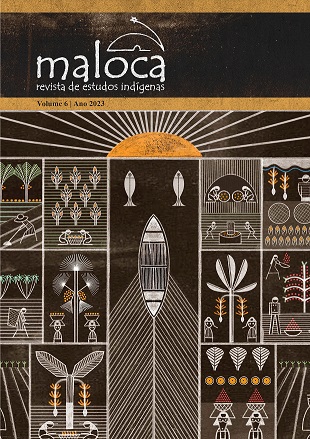Abstract
Under the generic name of ‘leaves’, some species of plants play a central role in the rituals of candomblé, as they are understood to hold a symbolic (magic–religious) and therapeutic (medicinal) effectiveness that make them indispensable to the very existence of worship. In Salvador, the dynamics of the commercialization of such leaves interacts with the practices of African–Brazilian religions. Considering the leaves to be simultaneously economic and symbolic goods, i.e., reiterating thus their doubled aspect as a product and as an object that carries magic–religious power (axé), an analysis is essayed on the metamorphosis of the leaf as a product, inspired by Enrique Dussel’s (2012) scheme, in order to from his comments on Marx’s Grundrisse. The formal modifications that the leaves go through are, then, highlighted: from its natural thing state and its circulation as an exchange value in the market, into its consumption (ritualistic/therapeutic) in the religious aspect, when it takes the form of ewê (sacred herb). The uniqueness of the leaves’ market in Salvador is revealed, amongst other factors, by the juxtaposition of the two spheres of distribution (simple and developed, as established by Marx) that interlace themselves dynamically, connecting a traditional market (of “African” makings) to the contemporary capitalist market.
References
DUSSEL, Enrique. 2012. A Produção Teórica de Marx: um comentário aos Grundrisse. São Paulo: Expressão Popular.
LEITE, Kelen Christina. 2009. “Apontamentos e perspectivas teóricas derivadas do pensa- mento de Marcel Mauss e sua relevância para a análise sociológica das formas alternativas de economia”. Campos – Revista de Antropologia 10(2): 41–58. http://dx.doi.org/10.5380/cam. v10i2.16335
MARX, Karl. 1996. O Capital: Crítica da Economia Política. Vol. I. Tomo 1. São Paulo: Nova Cultural.
MARX, Karl. 2008. Contribuição à Crítica da Economia Política. (2a ed.). São Paulo: Expressão Popular.
MARX, Karl. 2013. O Capital. Crítica da Economia Política. Livro 1 Vol. I: O processo de produção do capital. São Paulo: Boitempo.
MAUSS, Marcel. 2003. Sociologia e Antropologia. São Paulo: Cosac & Naify.
OLIVEIRA, Orlando José Ribeiro de. 2017. O mercado das folhas na pedra: produção e circulação de plantas rituais/medicinais na Feira de São Joaquim, Salvador (BA). Tese de doutoramento, UFBA, Salvador, BA, Brasil.
PRANDI, Reginaldo. 2005. Segredos guardados: orixás na alma brasileira. São Paulo: Companhia das Letras.
POLANYI, Karl. 2000. A Grande Transformação: as origens de nossa época. (2a ed.). Rio de Janeiro: Campus.
SANTOS, Juana Elbein dos. 1976. Os Nagô e a Morte: padê, axexê e o culto egun na Bahia. Petrópolis: Vozes.
VERGER, Pierre. 1981. Orixás: deuses iorubás na África e no novo mundo. Salvador: Corrupio. WEBER, Max. 1999. Economia e Sociedade: fundamentos dasociologia compreensiva. Vol. 1. Brasília: Editora UnB; São Paulo: Imprensa Oficial do Estado de São Paulo.

This work is licensed under a Creative Commons Attribution-NonCommercial-ShareAlike 4.0 International License.
Copyright (c) 2024 Orlando José Ribeiro de Oliveira, Marília Flores Seixas de Oliveira


